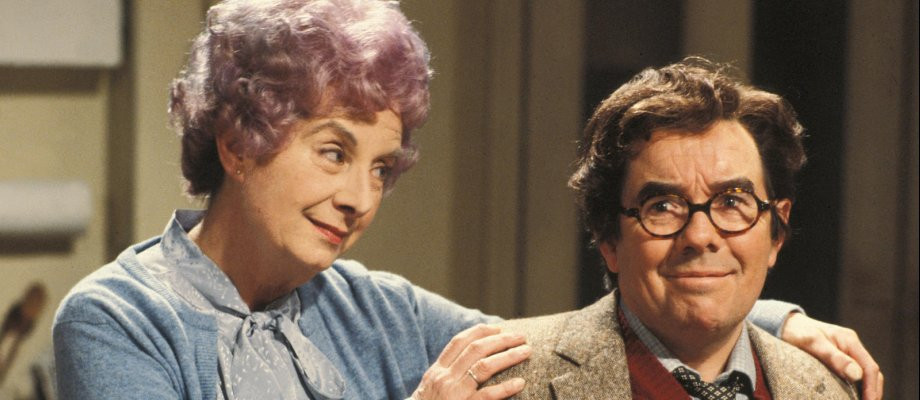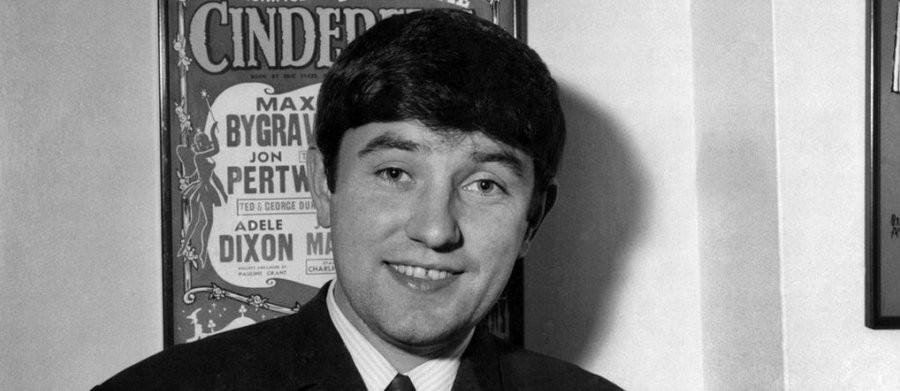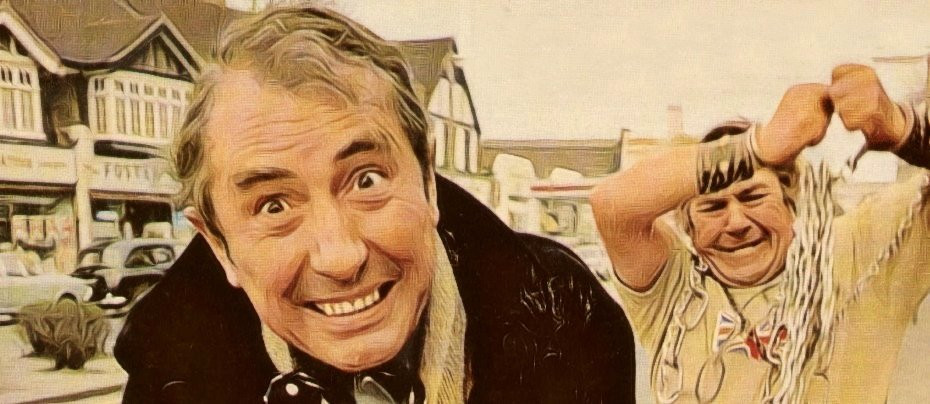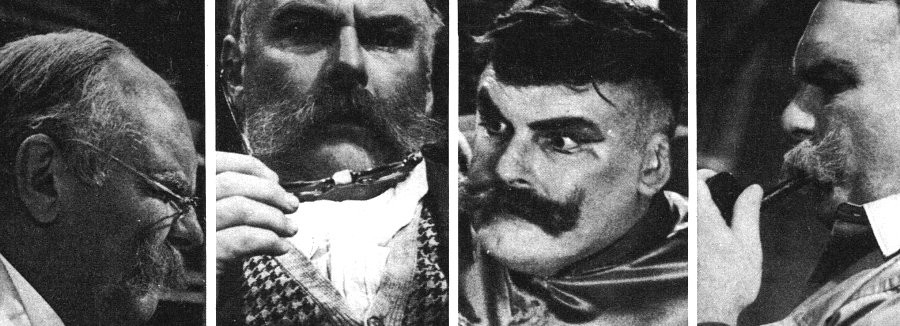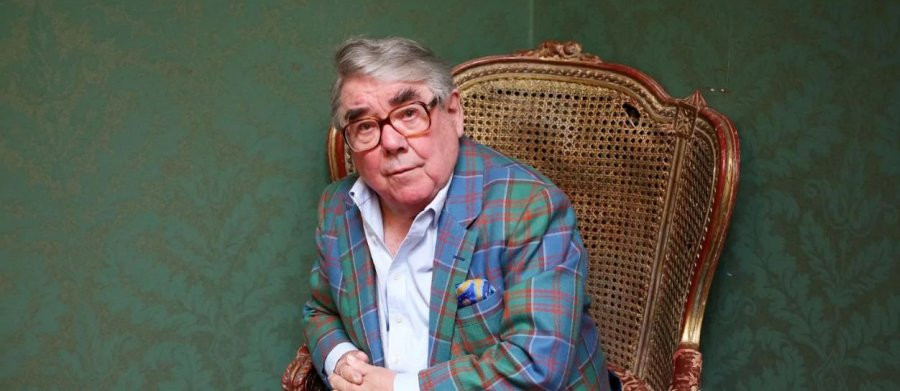
Ronnie Corbett
Biography: Brian Slade
There’s a tendency with double acts to overlook the contribution of one when the talents of another are excessive. Ernie Wise suffered from this greatly due to the justifiable adulation of Eric Morecambe - it was really only after Eric’s death that people began to direct the credit deserved in Little Ern’s direction.
In the case of The Two Ronnies , really a double act in name only, Ronnie Barker took such an excessive amount of praise that Ronnie Corbett’s contributions were sometimes overlooked. In reality though, Corbett’s talents were vast and although his solo performances aren’t given the attention that Barker’s garnish, there’s no doubting that his talents were on a par with Barker and in many ways surpassed his long-time comedy partner.
Corbett was born in Edinburgh in 1930. His father was a baker and Corbett believed it was he who inherited his sense of humour from, a humour he said was about, ‘seeing the funny side of the ordinary troubles of life.’ It’s perhaps for this reason that Corbett didn’t fret quite as much about his diminutive stature as some of his relatives. His Aunt Nell even sent off for a course called ‘How To Become Taller,’ which simply consisted of positive thinking and stretching to reach marks on the wall!
Corbett never seemed stressed by his size, his five-feet one-and-a-half inches proving to be quite the career booster in later life. His self-deprecating and easy going humour enabled him to admit that, ‘I defy anybody of my height to meet a girl of about 5ft 10in in the foyer of the Regal Cinema, in Edinburgh, and not see something funny about it.’
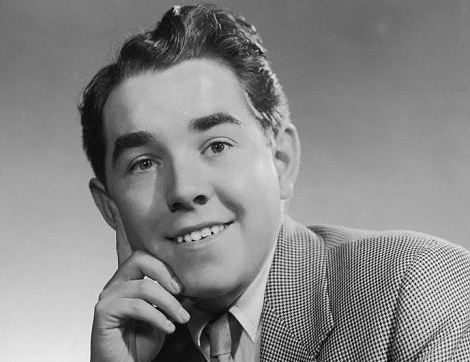
Despite his lack of height, Corbett spent significant time in the armed forces, but before he was drafted he had already decided that acting would be his chosen career, sparked by playing the aunt in a youth club production of Babes in the Wood when 16 years old. From here he enrolled in the Glover Turner Robertson School in Edinburgh, where he would take extra drama lessons and surrender his Scottish accent to the speech patterns of Shakespeare.
His time in the RAF came to a close in 1951, by when Corbett had left Edinburgh long behind him. Now settling in London in his desire for a theatrical career, he set about finding roles to pay for his new life. His first significant part was in You’re Only Young Twice , followed by a film that made use of his short stature by casting him as a schoolboy – he was now 21 years old – in Top Of The Form. But success eluded Ronnie for many years as he combined minor stage and film roles with paying jobs such as caretaker or tennis club booking secretary.
The false starts continued - several seasons alongside Clive Dunn followed and then an apparent breakthrough into a 22-week run of Fol-de-rols, headed by Jack Tripp. What should have been a career-turning moment fell flat as Corbett was released after only one performance.
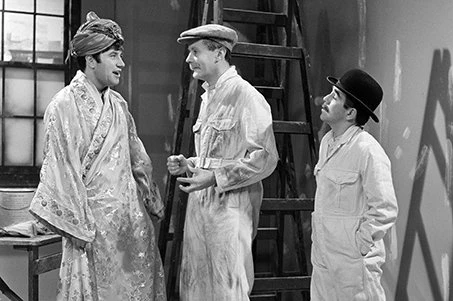
Corbett’s eventual stroke of luck came out of the most innocent of circumstances when he was working behind a bar at a club while a friend of his was talking to a West End club comedian, Digby Wolfe. After suggesting that he could get anybody onto television, Wolfe took on the challenge of getting Ronnie on television, which he succeeded at, but more importantly he got him into Winston’s night-club in Mayfair. Corbett would spend the best part of five years here, finally gaining some financial security and where he was spotted by Jimmy Tarbuck and David Frost. Tarbuck would give Ronnie small parts on Sunday Night at the London Palladium prior to him hitting the big time, but it was Frost who would send him on his way to stardom.
Frost spoke to Corbett about joining him on his new show, The Frost Report. Frost had been the golden child of television in the early 60s, with satirical programme That Was the Week That Wasbeing the must see show of the time. Corbett was appearing in a stage musical of the story of Robin Hood, called Twang!which is exactly how the show went, despite having the talents of Lionel Bart on board. Thankfully for Corbett, Twang!was cancelled very swiftly after proving an unparalleled flop, leaving him free to join Frost’s new team.
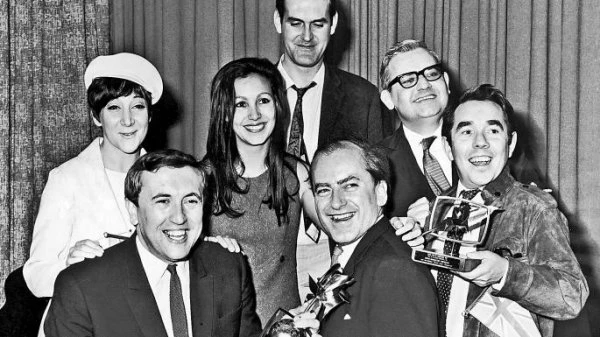
Frost took none of the performers of That Was the Week That Was into his new show. Instead he built a new line-up of Corbett, John Cleese and Ronnie Barker. The vast collection of writers contributing to The Frost Report would splinter off into their own remarkable careers. The Python team would achieve legendary status for both television and film as would Marty Feldman. Ronnies Barker and Corbett were not part of the writing team and their dynamic would stay with them throughout their careers. Barker was not yet fully immersed in writing, but he would pore over the scripts and make adjustments he felt would help the sketches. Corbett would simply learn his lines and be ready to deliver come recording time.
The Ronnies were both contracted to David Frost’s company Paradine Productions, so when he left the BBC in 1967, they went with him. They would continue to perform together in Frost on Sunday , but were free to perform in other productions. For Corbett, that included the short-lived sitcom, No, That’s Me Over Here .Penned by Eric Idle and Barry Cryer and with Marty Feldman as executive producer, it ran for three seasons and with talent such as this, it’s a great shame that two of the three series have been lost to the archives.
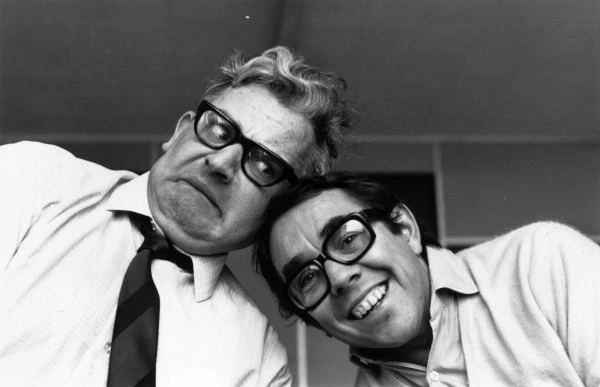
Although they had worked together for a number of years, it wasn’t until a BAFTA ceremony in the early 1970s that the idea of pairing the Ronnies came to fruition. BBC controller Paul Fox and the legendary head of Light Entertainment Bill Cotton were in the audience when a technical problem forced Barker and Corbett to entertain the crowd while repairs were sought. That brief off-the-cuff routine was enough to convince the pair that they could create a new show for a primetime Saturday evening slot.
The Two Ronnieswas an instant hit and became a national institution. In stark contrast to Morecambe and Wise, who by and large played themselves within their legendary programmes, Barker and Corbett’s interplay was far more sketch-based. It’s perhaps for this reason that people warmed to Corbett a little easier than Barker. For Barker, it was all about scripting and performing as a character. It was extremely rare to see Ronnie Barker on screen as simply Ronnie Barker. Less so for Corbett, whose self-deprecating monologues in the equivalent of the Mastermind chair, were delivered directly at the studio audience, which was often in shot – the only time during the show.
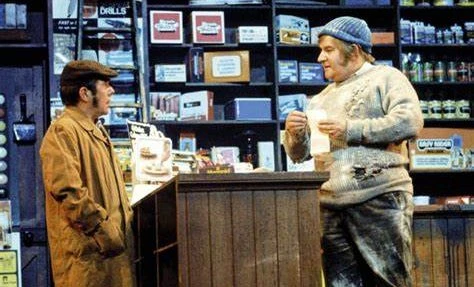
Four Candles, Mastermind (specialist subject, the question before last), Charlie and Bert… the sketches will go down in history as some of the classics of British television. But unlike Morecambe and Wise, the pair would go off and perform their own shows. Barker has claimed much credit for such successes as Porridgeand Open All Hours, but for Ronnie Corbett, his biggest solo success was Sorry! which told the story of a smothered 42-year-old trying to escape the interfering clutches of his overbearing mother. It is an unjustly overlooked programme which saw Corbett at the top of his game and it ran for seven series alongside the final years of The Two Ronnies.
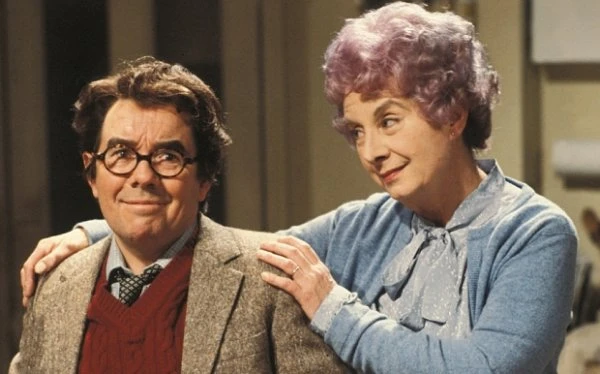
When Ronnie Barker unexpectedly announced his retirement from all performing, Corbett was left without his comedy partner. Sorry!finished a year after the final The Two Ronnies was aired and aside from a stint as host of the short-lived game show Small Talk, Corbett’s career seemed to stall. However, as is so often the case with veteran comedy performers, he came back to a new audience in a more contemporary setting. In 1998 he was invited to revisit his solo monologues in a slot on The Ben Elton Show. Although Elton’s era of comedy had signalled the death knell for many a successful seventies comedy programme, its host was a big fan of Corbett and the UK public welcomed Ronnie back onto their screens with open arms.
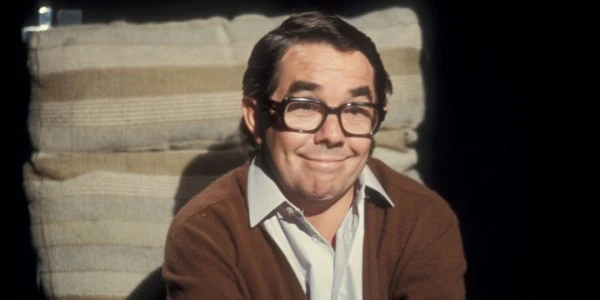
When Ronnie Barker agreed to reform the partnership for a brief highlights programme, the pair reprising their ‘a few last minute items of news’ routine after introducing some of their old favourites, it was an affectionate way for the British public to say goodbye to the act as it became clear that Barker’s health was failing and Barker passed away shortly after the final episode of The Two Ronnies Sketchbook was recorded.
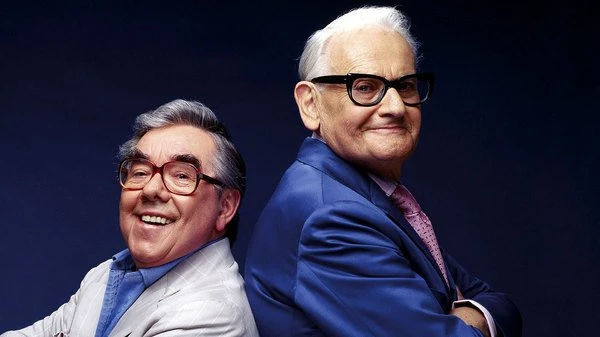
Having appeared in Little Britain Abroad , Corbett found himself very much in demand by his adoring fans from within the industry, and the creative geniuses behind the Little Britainprogrammes, Matt Lucas, David Walliams and Geoff Posner put together a special programme, The One Ronnie, to celebrate Corbett’s 80 th birthday. Adoring modern comedians and actors queued up to appear.
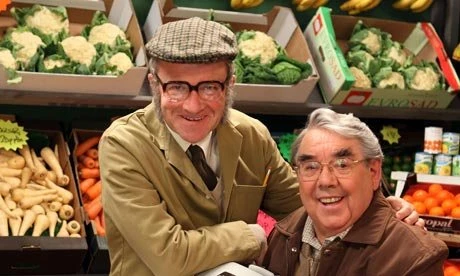
Corbett would continue to be a familiar face on television screens until his passing in 2016. His contribution to British comedy is extensive. Even on The Two Ronniessketches that have achieved the greatest notoriety, his contributions are far greater than any straight man role. The joy of Four Candles is not in the punchlines delivered by Barker – it is in the gradual disintegration of Corbett’s frustrated hardware salesman.
In summing up his career in his own autobiography, Ronnie Corbett hoped he had become the comedy performer equivalent of a well-established tradesman – ‘R. Corbett, purveyor of high class vaudeville.’ It’s an accurate and customarily self-effacing goodnight from him.
About Brian Slade
Born and raised in Dorset, Brian Slade turned his back on a twenty-five-year career in IT in order to satisfy his writing passions. After success with magazine articles and smaller biographical pieces, he published his first full-length work, `Simon Cadell: The Authorised Biography'
Brian is a devoted fan of the comedy stars of yesteryear, citing Eric Morecambe, Ken Dodd, Harpo Marx and Dudley Moore amongst his personal favourites. He was drawn to the story of Simon Cadell through not only `Hi-de-hi!' but also `Life Without George' , a programme he identified with having grown up in the Thatcher era.
Published on February 14th, 2020. Written by Brian Slade for Television Heaven.



